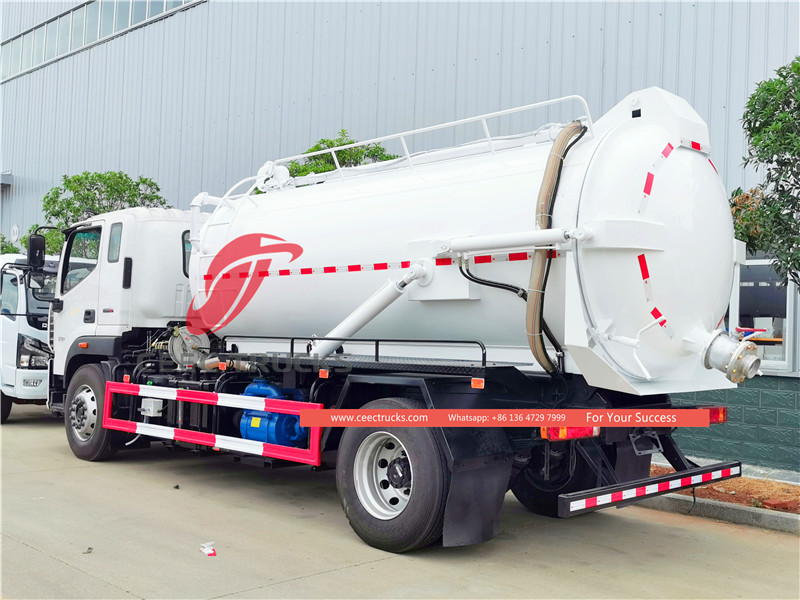
A Nigeria vacuum tanker truck is a specialized vehicle designed for the transportation and disposal of liquid waste or sludge, including sewage, wastewater, and industrial liquids. The vehicle is equipped with large vacuum pumps, hoses and containers that can hold up to several thousand liters of waste.
These vacuum tanker trucks are commonly used by government agencies, municipalities, and private waste management companies in Nigeria to collect and transport liquid waste to appropriate treatment and disposal facilities. The use of these vacuum vehicles is crucial to maintaining public health and preventing environmental contamination.

In Nigeria, vacuum tanker trucks play a critical role in the transportation of petroleum products, such as petrol, diesel, and kerosene, from refineries or ports to fuel stations and other points of distribution across the country. Vacuum tanker trucks are also commonly used for the collection and transportation of liquid waste, including sewage, industrial effluent, and hazardous chemicals.
Moreover, vacuum tanker trucks play an essential role in ensuring public health and safety by collecting and transporting sewage and other hazardous waste from residential areas and industrial sites. These trucks are essential in preventing the spread of diseases caused by sewage and other liquid waste.
In recent years, the increasing population growth and expanding urbanization have made the demand for vacuum tanker trucks more essential in Nigeria. The government has also been investing in infrastructure development, including water and sewage treatment plants, which require reliable and efficient vacuum tanker trucks for their effective operation.
1. Vacuum tanker trucks are commonly used in Nigeria to transport and dispose of liquid waste, including sewage, petroleum products, chemicals, and industrial waste.
2. These trucks are designed with a large tank that has a vacuum pump system to suck up and collect the waste, which is then transported to treatment or disposal facilities.
3. The vacuum tanker truck industry in Nigeria is largely unregulated, and many operators do not follow proper safety protocols or disposal procedures, leading to environmental and health hazards.
4. Poor maintenance practices and lack of proper equipment can lead to accidents and spills during transportation, which can contaminate water sources and cause harm to communities.
5. The Nigerian government has recently taken steps to regulate the vacuum tanker truck industry and improve standards for waste collection and disposal, but enforcement remains a challenge.
6. Increasing public awareness about the importance of proper waste management and safe operation of vacuum tanker trucks can play a significant role in reducing health and environmental risks associated with this industry.
You may be interested in the following information